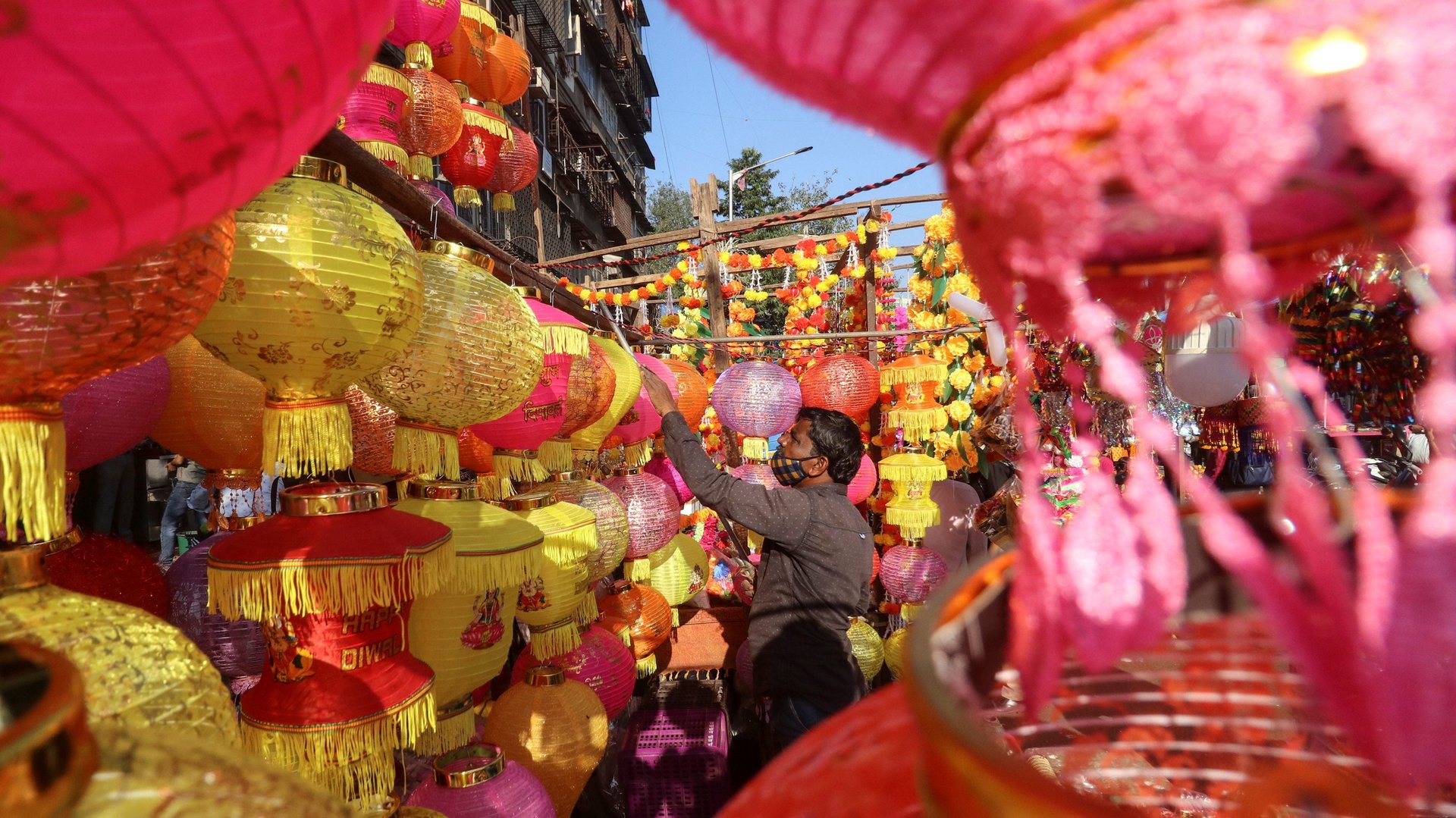India’s consumer confidence improves as the festive season nudges household spending
Indians are turning cautiously hopeful about their economy this festive season.


Indians are turning cautiously hopeful about their economy this festive season.
In September, consumers were less pessimistic than before, showed the Reserve Bank of India’s (RBI) consumer confidence survey (pdf) done every two months. The index improved to 57.7 that month, compared to 48.6 in July and a record low of 48.5 in May.
“Households reported a rise in overall expenditure, largely due to…essential items; the pessimism on current and future discretionary spending, however, reduced,” the report said.
A separate survey showed 91% of the consumers gearing up for Diwali, Dussehra, and Christmas shopping.
Among key variables, only optimism over household spending improved. Perception of others such as the country’s general economic situation, employment scenario, household income, and inflation, worsened since the last round.
The survey was conducted between August 29 and September 7 in 13 major cities: Ahmedabad, Bengaluru, Bhopal, Chennai, Delhi, Guwahati, Hyderabad, Jaipur, Kolkata, Lucknow, Mumbai, Patna, and Thiruvananthapuram. It obtained current perceptions on key variables from 5,237 households across these cities.
Inflationary pressure
While the central bank’s monetary policy committee (MPC) has lowered the inflation forecast to 5.3% for the ongoing financial year, its quarterly estimates show that consumer prices may heat up by the March quarter.
“With the improved pace of vaccination, demand could see a quicker adjustment vis a vis supply in few sectors. This could also potentially add to price pressures,” said a QuantEco Research report.
Over 60% of the consumers, according to RBI’s Household Inflation Expectation survey (pdf), believe that general inflation—more aligned to food products, non-food commodities, and cost of services—will rise in the December quarter and over the next year.
Supply-side disruptions caused by the global energy crisis as well as a shortage of semiconductors may cause an overall price spike.
Also, following massive pay cuts and layoffs amid the pandemic, the recovery in India’s labour market appears to be uneven.
Job market recovery
Mumbai-based think tank Centre for Monitoring Indian Economy said unemployment fell sharply to 6.86% in September as against 8.32% in August—most of the 8.5 million new jobs were rural.
In fact, citing labour market risks, the International Monetary Fund, on Oct. 19, drew down its growth forecast for India by 25 basis points to 6% in the medium term.
It looks like supply chain bottlenecks and an uneven recovery in its labour market may dampen the country’s long-term growth prospects.